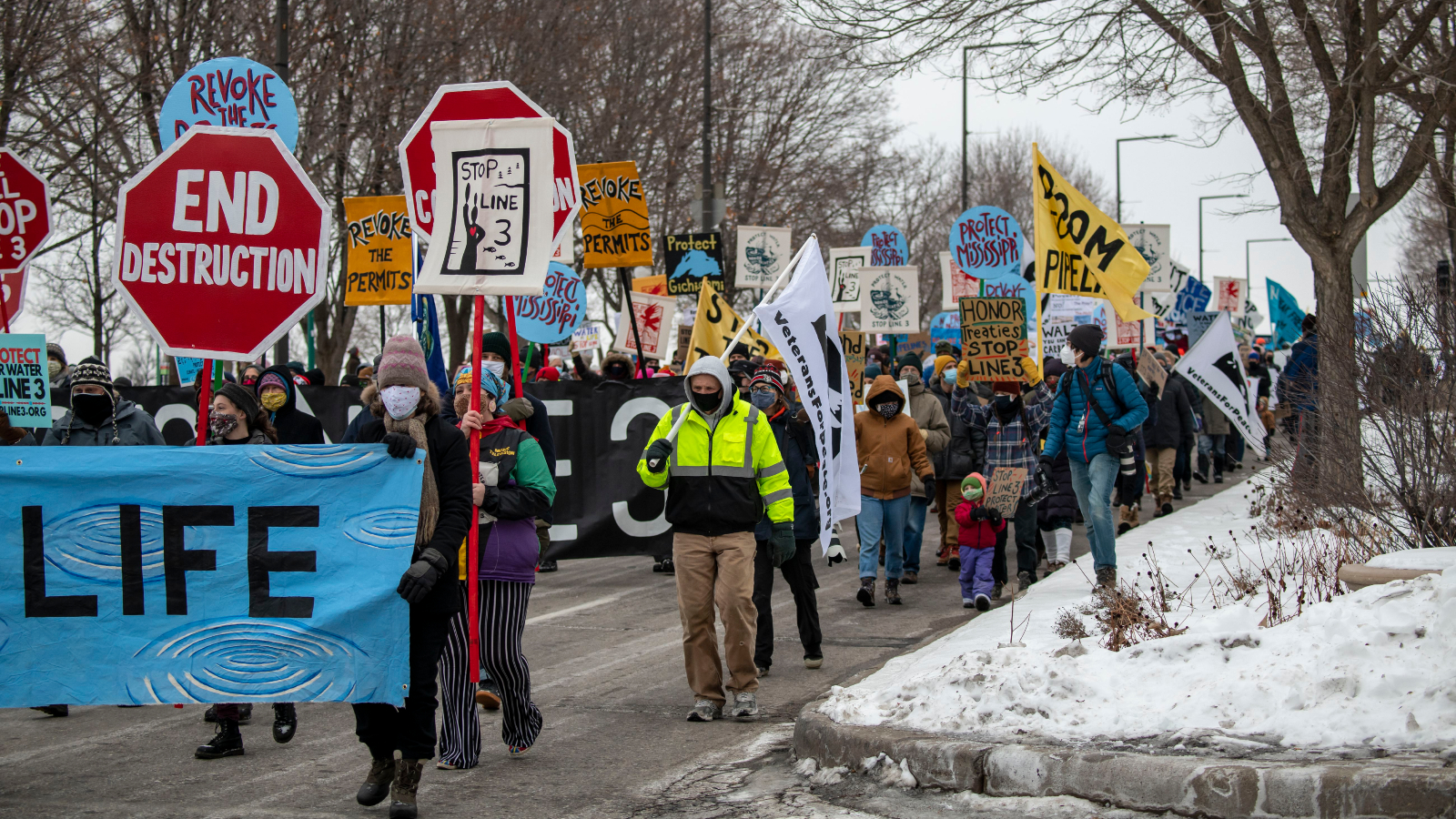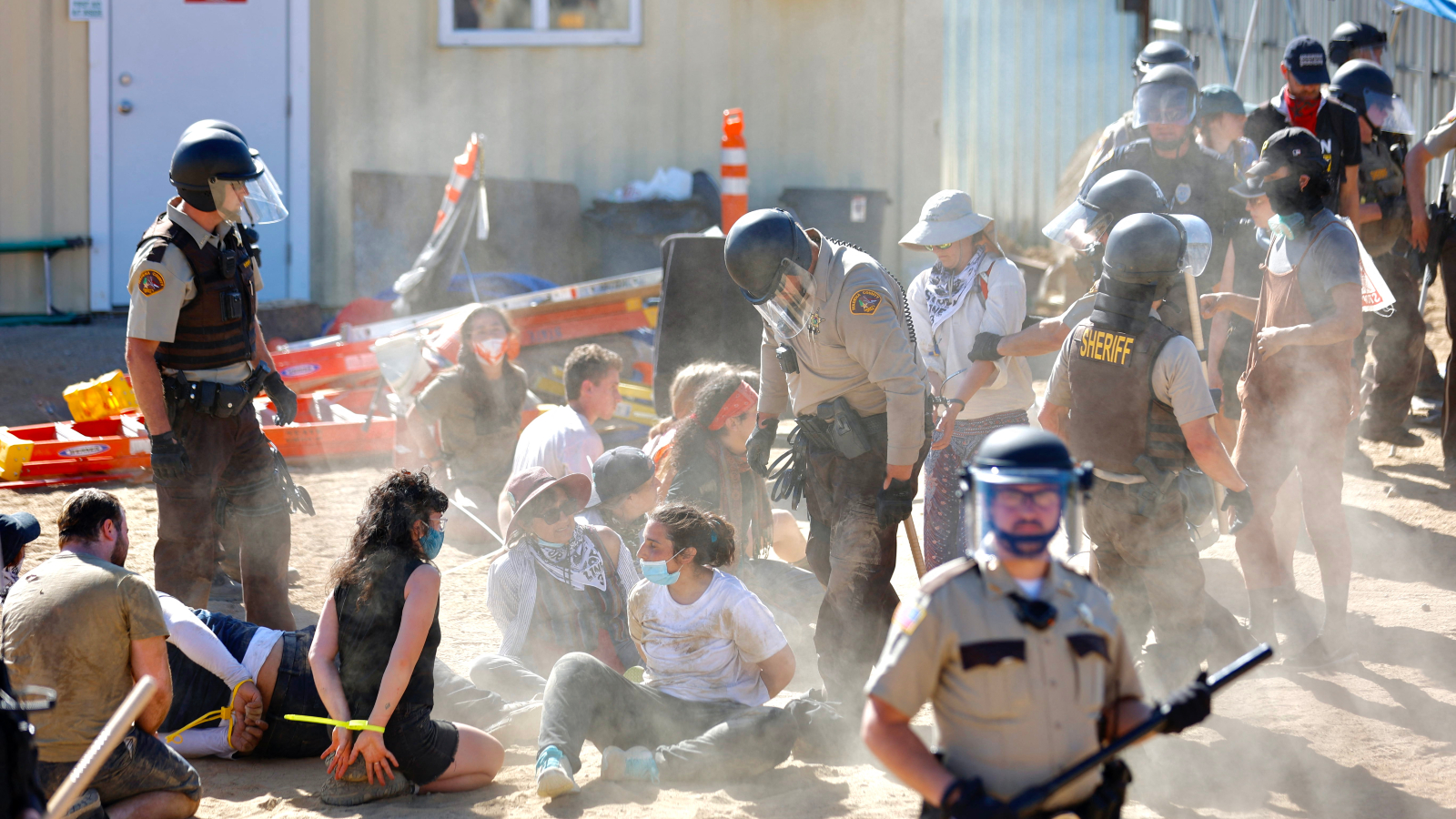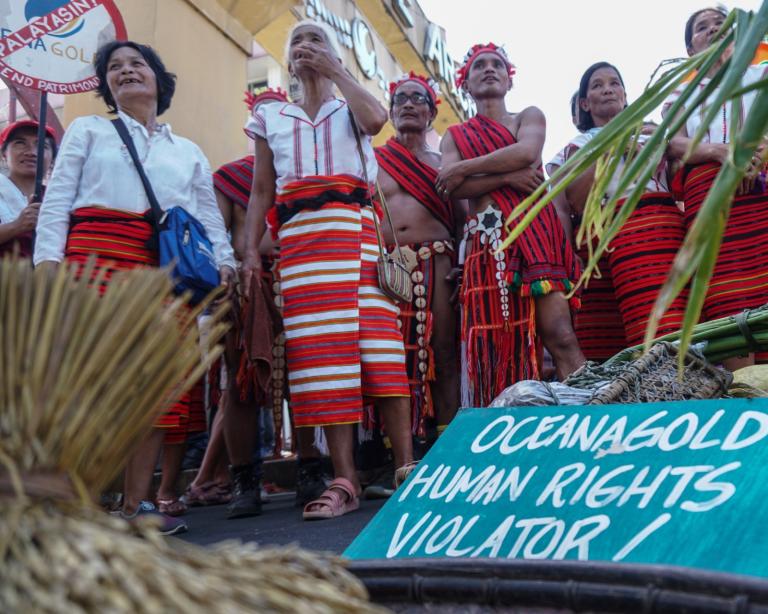This story was originally published by the Center for Media and Democracy and is republished with permission.
In a ruling last week, a Minnesota judge summarily dismissed misdemeanor charges against three Anishinaabe water protectors who had protested at a pipeline construction site in an effort to stop the Enbridge Line 3 tar sands oil pipeline. “To criminalize their behavior would be the crime,” she concluded.
Judge Leslie Metzen relied on a rarely-used Minnesota statute that allows a judge to dismiss a case if doing so furthers “justice.” She assessed that in this case justice meant throwing out charges against Anishinaabe people committed to preserving their treaty lands. “The court finds that it is within the furtherance of justice to protect the defendants peacefully protesting to protect the land and water,” she wrote.
“I’ve never seen a judge dismiss a case in the name of justice,” said Claire Glenn, a staff attorney at the Climate Defense Project who was part of the defense team for the water protectors. She said that research undertaken by the legal team found very few cases where the statute had been cited previously.
The three defendants, Tania Aubid, Dawn Goodwin, and Winona LaDuke, were emotional as they processed the ruling during a press conference on Monday. Each member of the trio faced a range of charges — including trespass, harassment, public nuisance, and unlawful assembly — for their participation in a protest in January 2021.
“Judge Metzen proved that treaties are the supreme law of the land, and we have every right to protect for future generations,” said Goodwin, who also goes by Gaagigeyaashiik and is a White Earth tribal member.
LaDuke, however, argued that the system was not strong enough to keep their people’s land and water safe. Since the completion of the pipeline in 2021, regulators have revealed that Enbridge punctured aquifers at least four times during construction.
“The regulatory system and legal systems are not equipped to deal with the violence of the ecological crimes underway,” LaDuke, former director of the nonprofit Honor the Earth, said. As she sees it, the water protectors had no other recourse than to participate in a months-long series of protest actions meant to halt the project.
As the Center for Media and Democracy and Grist laid out in a recent investigation, Enbridge reimbursed sheriffs’ offices, the Minnesota State Patrol, the Department of Natural Resources, and even a public relations officer for work related to quelling the protests, funneling a total of $8.6 million to various agencies through an escrow account created by the state Public Utilities Commission.
According to police reports, a group of 200 protesters blocked traffic on a rural Minnesota road on January 9, 2021, as they marched toward a place where a backhoe was holding a large pipe near a freshly dug hole. Twenty or 30 people entered the pipeline construction site, stopping work. “A Native American woman I did not know, wearing a jingle dress did a dance on the edge of the trench, and would not move back,” wrote Aitkin County Investigator Steve Cook. Police issued dispersal orders, and the protesters cleared out soon after, the reports conclude.
An officer on the ground pointed to Aubid and LaDuke as potential leaders, and another investigator identified Goodwin after reviewing Facebook videos. But the trio only received citations weeks later — five misdemeanor charges for Aubid and LaDuke, and three for Goodwin.
It would be months before Enbridge reimbursed law enforcement agencies for the hours they spent policing the protest. According to an analysis by the Center for Media and Democracy, at least four local law enforcement agencies received more than $17,000 from Enbridge for assigning nearly 40 officers to the protest site that day.
“It was not necessary to have 40 or 50 police officers at any point,” LaDuke said. “This was excessive force used upon all of us — excessive prosecution, and it was incentivized by Enbridge.”
About two weeks after the protest, Enbridge machinery quietly punctured an aquifer at a similar Line 3 construction site. Over the next year, a total of more than 72 million gallons of water spilled from the earth. The Minnesota Department of Natural Resources forced the company to pay $3.2 million in environmental penalties. However, a single misdemeanor was the only criminal charge Enbridge faced, and it came with a deal that said it would be dismissed after a year.
The aquifer breach was key to the defense attorneys’ argument for dismissal of the charges. At a settlement conference the day before the decision, Joshua Preston, who represented Goodwin, asked the judge to put the case in perspective.
“We just experienced the hottest summer globally on record, a documented fact that led the United Nations Secretary General to issue a statement on September 6 stating ‘climate breakdown has begun,’” he said. “Why does Enbridge get one charge while my client gets three?”
“This is the question history will ask if the state is allowed to move forward in its prosecution,” Preston continued.
At the press conference, Frank Bibeau — who is Anishinaabe and a longtime attorney for pipeline opponents — said that such arguments are typically ignored when they come from Indigenous people: “These are words we say all the time, but they never get heard.”
Prosecutors filed a total of 967 criminal cases against people attending Line 3 protests. The vast majority were dismissed, some for lack of probable cause, others via negotiated agreements. Not everyone has avoided “guilty” verdicts. In the last three months, two were convicted of felonies for participating in protests. Glenn said those cases involved prosecutorial misconduct that is still being litigated. Fewer than 20 open cases remain.
In a number of cases, attorneys attempted to argue that the involvement of the Enbridge escrow account means the arrests violated pipeline opponents’ rights to due process. However, these arguments failed to sway any judge.
Preston’s arguments about his clients’ case’s relation to the climate crisis, on the other hand, found a receptive audience in court. “These cases and these 3 defendants in particular have awakened in me some deep questions about what would serve the interests of justice here,” Metzen, the judge, wrote in a memo attached to the ruling.
“Their gathering may have briefly delayed construction, caused extra expense to law enforcement who came to clear their gathering (much of which was reimbursed by Aitkin County through Enbridge), but the pipeline has been completed and is operating in spite of their efforts to stop it through peaceful protest,” she continued. “In the interest of justice the charges against these three individuals who were exercising their rights to free speech and to freely express their spiritual beliefs should be dismissed.”





